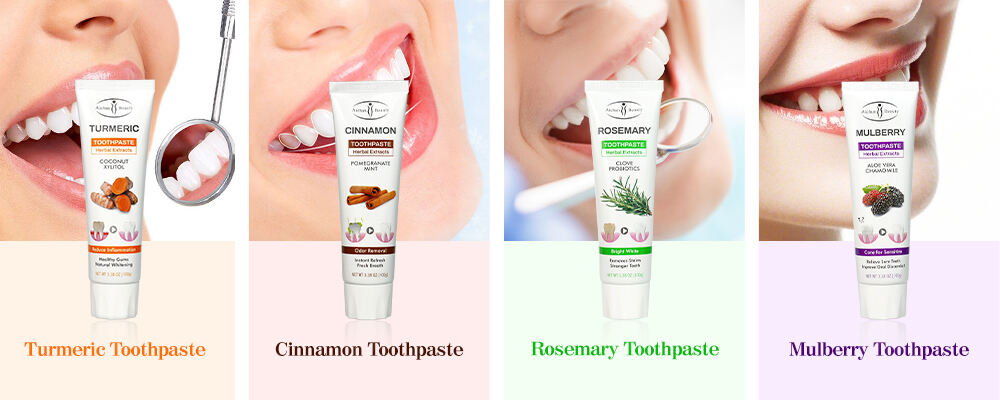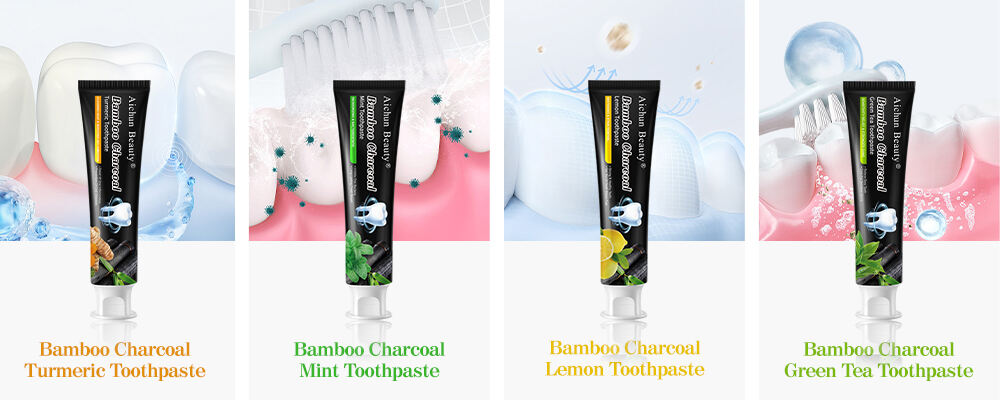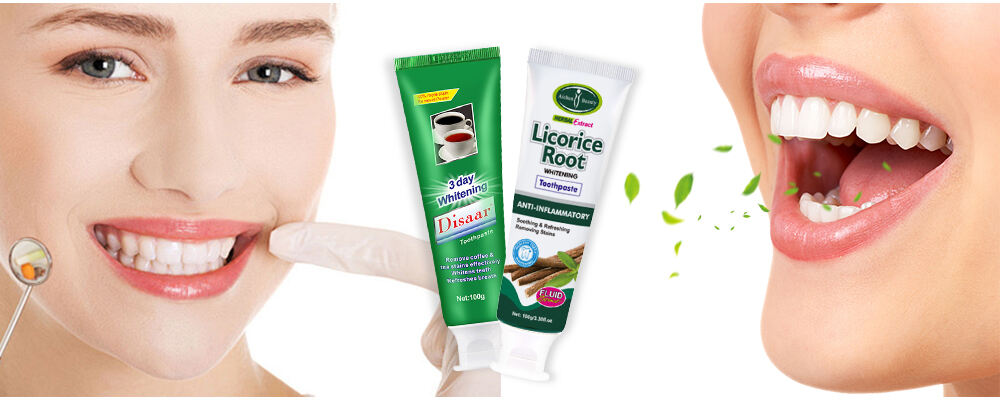In a world increasingly driven by health-conscious decisions, the demand for cleaner and more natural personal care products has never been higher. Oral care, a fundamental part of daily wellness, is evolving in response to this shift. One of the most prominent changes is the growing popularity of herbal toothpaste. Rooted in traditional knowledge and supported by modern awareness, herbal toothpaste offers a compelling alternative to conventional formulas filled with synthetic chemicals. This nature-based option is not just a trend but a meaningful lifestyle choice for individuals who prioritize wellness from the inside out.

Herbal toothpaste refers to oral care products that primarily use plant-based ingredients to maintain oral hygiene. Instead of relying on synthetic compounds, herbal toothpaste includes botanical extracts, essential oils, and natural abrasives to clean the teeth, freshen breath, and support gum health.
Common ingredients in herbal toothpaste include neem, clove,turmeric,cinnamon,rosemary,mulbeery, licorice root, peppermint, eucalyptus, tea tree oil,bamboo charcoal green tea,bamboo charcoal lemon bamboo charcoal mint,bamboo charcoal tummeric and myrrh. These herbs and extracts have a long history of use in traditional medicine systems, such as Ayurveda and Traditional Chinese Medicine, and are known for their antibacterial, anti-inflammatory, and astringent properties.
Unlike traditional toothpaste, which often contains fluoride, sodium lauryl sulfate (SLS), artificial flavors, and preservatives, herbal toothpaste avoids harsh chemicals. It instead leans on the therapeutic properties of natural ingredients to deliver similar or even enhanced benefits without side effects such as sensitivity, irritation, or allergic reactions.
For those who want to avoid artificial sweeteners, dyes, or foaming agents, herbal toothpaste offers a purer, more transparent choice that aligns with clean-label expectations.

One of the primary advantages of herbal toothpaste is its ability to fight bacteria using plant-based ingredients. Herbs like neem, clove, and tea tree oil have powerful antimicrobial effects that target harmful oral bacteria while preserving the natural balance of the mouth’s microbiome.
By incorporating herbal toothpaste into your daily routine, you can reduce plaque buildup, prevent cavities, and maintain fresher breath without resorting to chemical-laden alternatives. This gentle yet effective protection is particularly beneficial for individuals with sensitive mouths.
Many people experience discomfort or allergic reactions from synthetic ingredients in conventional toothpaste. Herbal toothpaste, free from artificial additives, is often better tolerated by individuals with sensitive gums or allergies.
Herbal toothpaste relies on soothing agents like chamomile, aloe vera, and calendula to calm inflammation and promote healing. As a result, it can help reduce gum sensitivity, swelling, and redness, making it ideal for those prone to oral discomfort.

The effectiveness of herbal toothpaste lies in the synergy of its natural ingredients. Neem is known for its antibacterial and antifungal properties, making it excellent for preventing cavities and gum infections. Clove provides pain relief and combats mouth bacteria. Licorice root reduces inflammation and supports a healthy oral environment.
Other commonly used herbs include peppermint for its refreshing taste and antiseptic properties, myrrh for gum health, and eucalyptus for its cooling, antibacterial effects. These herbs work together to cleanse the mouth and protect it naturally.
Beyond cleaning the teeth and freshening breath, herbal toothpaste can contribute to overall oral wellness. Herbs like tulsi and guava leaf offer antioxidant protection, while essential oils like tea tree and eucalyptus enhance wound healing and reduce microbial growth.
Herbal toothpaste also promotes salivary flow, which helps neutralize acids and remineralize enamel. This comprehensive approach supports not just clean teeth but a healthier oral ecosystem.
Herbal toothpaste is often produced with sustainability in mind. Many manufacturers emphasize organic cultivation, fair trade sourcing, and ethical harvesting practices. This means you’re not just caring for your own health, but also supporting environmentally responsible supply chains.
Choosing herbal toothpaste contributes to reducing the demand for chemical farming and non-renewable resources. It aligns well with values of sustainability, ethical production, and ecological harmony.
In addition to the benefits of natural ingredients, many herbal toothpaste brands offer eco-friendly packaging. Glass jars, compostable tubes, and recyclable boxes are commonly used to minimize environmental impact.
By switching to herbal toothpaste, consumers can play a small yet meaningful role in reducing plastic waste and lowering their personal carbon footprint. This adds another layer of value to the decision to go herbal.
Using herbal toothpaste is often part of a larger commitment to holistic wellness. Many individuals who choose herbal toothpaste also embrace other natural products, such as herbal mouthwashes, oil pulling solutions, and plant-based diets.
This holistic approach emphasizes balance, mindfulness, and prevention rather than quick fixes. Herbal toothpaste aligns with this philosophy by supporting daily oral care in a way that is gentle, restorative, and free of unnecessary additives.
The use of herbal toothpaste encourages a more mindful dental care routine. Its natural textures, aromas, and flavors can make brushing feel like a ritual rather than a chore. This promotes consistency and reinforces the importance of oral care as part of overall health.
The sensory experience of herbal toothpaste—earthy scents, smooth textures, and botanical flavors—can enhance mental well-being, offering a small but significant moment of calm and connection in a busy day.
Many users wonder whether herbal toothpaste is as effective as conventional varieties. Research and anecdotal evidence suggest that when properly formulated, herbal toothpaste can match or surpass traditional toothpaste in terms of plaque reduction, breath freshness, and gum health.
Ingredients like neem, clove, and tea tree oil have demonstrated strong antibacterial properties in various studies. Combined with abrasive agents like calcium carbonate, herbal toothpaste effectively cleans the teeth without damaging enamel.
Herbal toothpaste is generally safe for use across all age groups, including children and the elderly. Formulations designed for kids often feature milder herbs and natural sweeteners like stevia to enhance palatability.
For seniors or individuals with medical conditions affecting oral health, herbal toothpaste offers a gentler and more supportive option. Always choose products appropriate for the user’s specific needs and consult a dentist if in doubt.
Not all herbal toothpaste products are created equal. Look for brands that disclose all ingredients, avoid synthetic fillers, and prioritize organic or wild-harvested herbs. Certifications such as USDA Organic or COSMOS Organic can offer additional reassurance of product integrity.
Check for transparency in labeling and avoid vague claims. A good herbal toothpaste will list its botanical ingredients clearly and explain their intended functions.
Your choice of herbal toothpaste should reflect your specific oral health concerns. If you struggle with bad breath, opt for a product rich in peppermint or tea tree oil. For gum support, look for formulations with myrrh, neem, or calendula.
Consider factors such as flavor preference, fluoride content, and sensitivity when making a selection. With many varieties available, there’s a herbal toothpaste option suitable for nearly everyone.
If you’re new to herbal toothpaste, transitioning from conventional products may take a bit of adjustment. Some people find the texture or taste unfamiliar at first, but most quickly adapt and come to appreciate the refreshing, natural feel.
Start by alternating herbal toothpaste with your regular toothpaste, then gradually switch over fully. This allows your mouth to acclimate and gives you time to observe any improvements in your oral health.
For best results, pair herbal toothpaste with other natural oral care habits. Practices like oil pulling with coconut or sesame oil, using herbal mouth rinses, and eating a diet rich in anti-inflammatory foods can enhance the benefits.
Good brushing technique, flossing, and regular dental checkups remain essential. Herbal toothpaste serves as an important piece of a comprehensive oral hygiene strategy.
Yes, herbal toothpaste can help prevent cavities by reducing plaque, balancing oral bacteria, and strengthening gum health. Ingredients like neem and clove have shown antimicrobial effects that protect against tooth decay.
Some herbal toothpaste options contain fluoride, while others are fluoride-free. It’s important to read the label and choose according to your preferences and dental care needs.
Many herbal toothpaste brands offer child-friendly versions that are gentle and free from harsh ingredients. Always supervise young children while brushing and consult your pediatric dentist for recommendations.